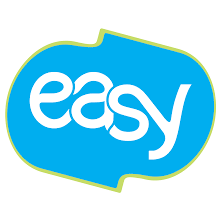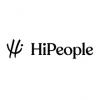According to U.S. Census Bureau, 25% of all businesses and 30% of new companies have no employees other than their owners. While these businesses may have simple finances, accounting tools are still vital to help you deal with taxes and other financial issues and make good management decisions.
Accounting automation is an invaluable tool for businesses of all sizes. For small businesses, accounting automation can help save time and ensure that financial processes are thoroughly executed and error-free.
Every business entrepreneur says yes to the difference between hard work and productive work. Hard work leads to productivity, but we can all agree that it requires a lot of energy and gets you draining faster.
Productivity is a giant term in any business which needs validation. Automating your accounting work will smoothen this process so well that you will never have to worry about any such task.
To help small business owners succeed, we've put together a list of best accounting automation practices to help your small business organization run more smoothly and efficiently.
So can we take this off your list?
1. Increase efficiency, profitability, and process visibility
You wouldn't like to drive a vehicle without a dashboard having all the necessary details like speed and fuel meters, and it is similar to your accounting automation. I would mention that accounts have the life and blood of any company, business, or organization, no matter how small or big. So increasing process visibility is pretty much non-negotiable.
It would be best if you broadened the scope of your assessment of your project costs. Choose softwares with dashboards to help you monitor the accounts with ease. You must choose the one with the most details available to keep a check.
The profitability comes with reducing costs starting and then maintaining a flow after your setup building for growth. Accounting softwares help you reduce costs in the company and also streamline the process.
2. Manage your inventory
The software you choose must help you streamline your inventory process through the supply chain. There are many options for such softwares, and they will also help you keep the sales figures handy at all times.
Exhaust all your options using critical analysis, know what you need, and never go without a proper background and review check of the software.
3. Use the system for project close
Give each project its sub-ledger account, if it has one, and then create a project journal posting for each project. It's helpful to keep a list of accounts set up for each customer or vendor on a spreadsheet to use as a starting point.
4. Use the software intuitively and identify your accounting process
We recommend picking up cloud-based software. You must identify your low-value repetitive tasks and automate them, and RPA means robotic process automation for your accounting needs.
5. Assign a stakeholder for your automation process levels
The excellent part about automation software is that you need to roll up your sleeves and put the effort once.
Once you implement all the critical thinking on what you need to automate and why you need it, the software won't let you use your time on trivial matters.
We agree that regular checks are mandatory, so we recommend you assign a stakeholder for each process for maximum productivity and not let the device control everything. The given stakeholder can become the person for crapping out all the problems that pop up within the automation process, and they can troubleshoot as soon as the errors appear.
6. Set up your system and test it
You must spend enough time and effort initiating and building the softwares for its maximum potential outcome. Test with the accounting team and run them using sample data.
If you are a one-man-band, you can ask for an accountant's help over a platform where people work by the hour. Don't let being a solopreneur come in the way of your accounting clarity because compromising on this will surely make your business suffer big time.
7. Keep your game up with A/R dashboards
The fancy term, right, but what is it, and why do you need it. Can you do well without it?
Answering all of those dashboards is a crucial part of growth. The AR dashboard helps you manage your cash flow and strategy. In measuring your receivable KPIs, you must pay attention to the cash flow and design.
We can agree that they are not with the most cutting-edge tech in this area, and you can avoid using them because they aren't the most reliable. Why so? Because many financial terms still rely on manual spreadsheets.
8. The Finance Handle
Automation softwares boost your business's financial growth, and we can vouch for that. From time tracking on projects to smoothening your workflow and collecting invoices, they rise to the occasion.
The software you choose for your accounting automation must have a definitive set of features like- Reporting, collecting bills and payments, sending reminders on a usual basis, and the most crucial time tracking of projects.
9. Always check the basics
The basics of accounting automation are-
- Managing expenses: your software can help you big time. It can send triggers for reimbursement and other invoice collection and in case of handling credit data to match with the receipts.
- Payroll management: It can help you further calculate each employee's payroll.
- Reconciliations: Bank reconciliation is an essential part of the business. Softwares help you match your record and check for discrepancies if any.
- Accounts payable: You can manage all the bills in this section. Automate your bill payment to build a good rapport with businesses and suppliers.
- Accounts receivable, payable, and clearance: You can avoid payment failures and reduce the risk of delayed payments.
10. Incentivize payments
The most important payment options today are online. You must promote and encourage online payments and incentivize people if they pay online, enabling them to do.
Incentivizing online payment helps you manage any payment deadline and gives you peace of mind when all your prices are at a fixed date.
Let's look at 5 softwares that can help implement the above tips and ake accounting automation on a gradual slope.
1. Sage financials
 Sage Business Cloud Accounting is easy to use to focus on your business matters most. This will allow you to spend no time worrying about bookkeeping and more time taking care of your customers.
Sage Business Cloud Accounting is easy to use to focus on your business matters most. This will allow you to spend no time worrying about bookkeeping and more time taking care of your customers.
The best is Sage Business Cloud Accounting. It's online accounting software designed to make life easier for small business owners, entrepreneurs, and freelancers by giving them the tools they need to manage their day-to-day operations.
This is how accounting automation works: sage automatically takes care of the mundane tasks.
Sage financials is an app available on Insiderapps.com
2. Freshbooks
 FreshBooks is an online invoicing and time-tracking service that saves you time and money.
FreshBooks is an online invoicing and time-tracking service that saves you time and money.
Stop struggling to get paid on time, track your time automatically, and look professional with invoices.
The best part is free for 30 days, meaning you can start using FreshBooks with no risk.
Freshbooks is an app available on Insiderapps.com
3. Taxdome
 TaxDome is a cloud-based software built to help you stay on top of your information and simplify the accounting process. With TaxDome, you can eliminate manual data entry and ensure you always have access to the most up-to-date financial data.
TaxDome is a cloud-based software built to help you stay on top of your information and simplify the accounting process. With TaxDome, you can eliminate manual data entry and ensure you always have access to the most up-to-date financial data.
TaxDome creates a central location where you can input your customer information, sales data, and other accounting information. TaxDome helps you stay organized and on top of your data. Enter your data once, and TaxDome will automatically create reports and tax forms for you.
TaxDome is created for the tax and accounting industry, letting you automate processes, have clear visibility into your work, and ensure nothing slips through the cracks.
Tax automation software can make accountants more efficient by eliminating the need to enter data and help streamline your growing business manually.
"Accountants typically spend 20-25% of their time on routine accounting tasks," says TaxDome CEO Moshe Krasnansky. "Our software helps accountants free up that time, allowing them to focus it on higher-level tasks such as strategy and profitability.
Taxdome is an app available on Insiderapps.com
4. Kashoo
 Kashoo is simple online accounting software that lets you automate your bookkeeping and accounting processes.
Kashoo is simple online accounting software that lets you automate your bookkeeping and accounting processes.
With Kashoo, you can easily import transactions from your bank accounts, sync data with your accounting software, and create valuable reports for financial analysis.
Kashoo is cloud-based online accounting software that lets you automate bookkeeping and accounting processes.
Kashoo is an app available on Insiderapps.com
5. Easy AccountTax
 Easy AccountTax is the perfect solution for accountants, freelancers, and other small businesses who need to simplify their workflow and increase productivity. If you're a savvy businessperson, you know that the most important thing for any business is to stay organized and focus on what matters: growing your business.
Easy AccountTax is the perfect solution for accountants, freelancers, and other small businesses who need to simplify their workflow and increase productivity. If you're a savvy businessperson, you know that the most important thing for any business is to stay organized and focus on what matters: growing your business.
Easy AccountTax gives you the tools to organize your workday and prioritize your tasks. It allows you to create digital workflow processes for your clients for every step of an accounting process, such as opening a new company or sending out a 1099-MISC. The software also keeps you organized with automated workflows like reminding you when to update your business licenses or when it's time to send out a 1099-MISC.
Easy AccountTax also helps you get more tax deductions by keeping track of your business mileage, deductions, and more.
Easy AccountTax is an app available on Insiderapps.com
This list has all the solutions you will ever need, including inventory management, payrolls, invoices, etc. Choose your pick and have peace of mind with accounting automation.



















